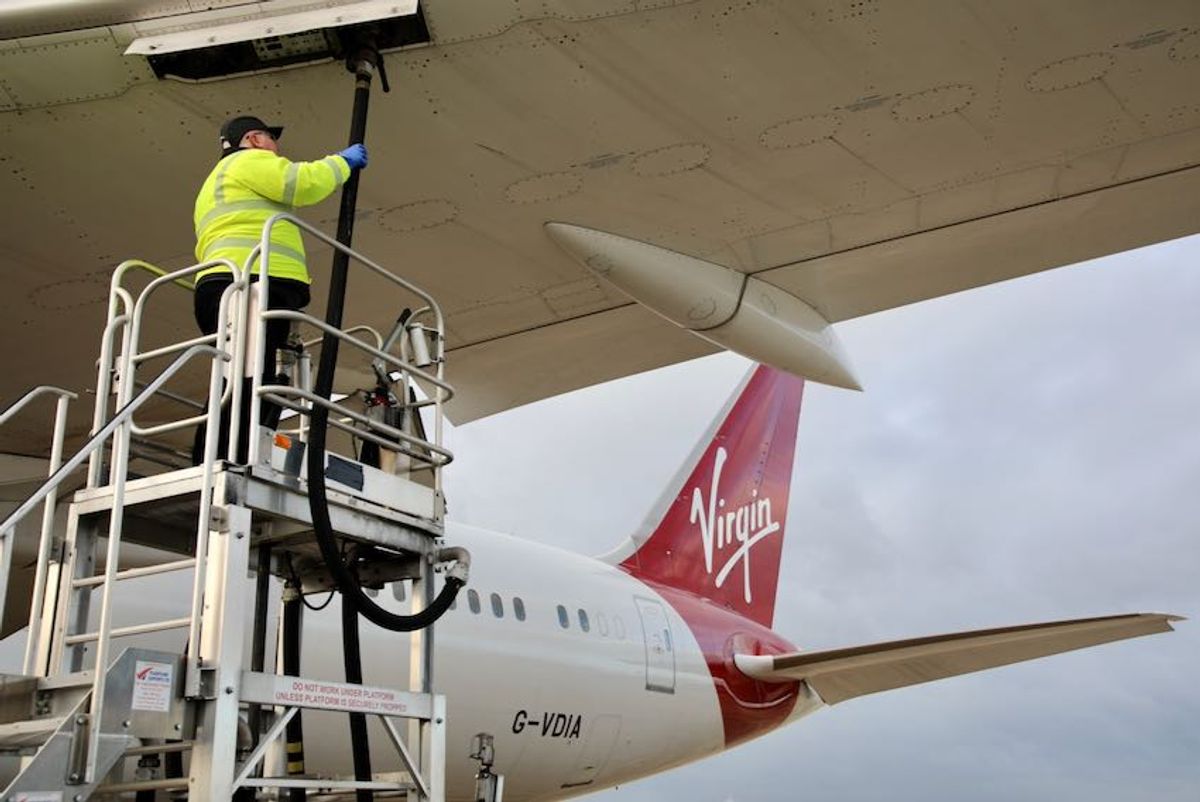Virgin Atlantic recently launched an ad promoting its groundbreaking ‘Flight 100’, which was hailed as the first transatlantic flight powered by 100% sustainable aviation fuel (SAF). However, the Advertising Standards Authority (ASA) in the UK has banned the ad, deeming it to be “misleading” to consumers. The ASA ruled that the claim of using “100% sustainable aviation fuel” in the radio advert was misleading, as many listeners may not fully understand the environmental impacts of such fuels.
The radio advert, aired on 24 November 2023, boasted about Virgin Atlantic’s Flight 100, which was set to fly from London Heathrow to JFK using only sustainable aviation fuel. The ad highlighted the airline’s commitment to sustainability and innovation, challenging the notion that such a feat was too difficult to achieve. However, five complainants raised concerns about the accuracy of the claim, prompting the ASA to investigate.
The ASA’s assessment revealed that some listeners may have interpreted the claim of “100% sustainable aviation fuel” to mean that the fuel had no negative environmental impacts whatsoever. This led to the ruling that Virgin Atlantic’s claim breached advertising rules related to misleading advertising and environmental claims. Despite the airline using terminology similar to that of the UK government when describing the milestone flight, the ASA found the claim to be unsubstantiated.
Results from Flight 100, published by Virgin Atlantic in May, showed a significant reduction in lifecycle CO2 emissions compared to a traditional flight using regular aviation fuel. The airline emphasized the positive impact of using SAF, stating that it produced the same level of CO2 emissions during flight as traditional jet fuel.
In response to the ASA’s ruling, Virgin Atlantic conducted a consumer survey to gauge public understanding of the ad’s messaging. The survey revealed that while a majority of respondents understood that sustainable aviation fuel was better for the environment than traditional jet fuel, there were still misconceptions about its environmental impact. This lack of clarity among consumers led the ASA to conclude that a significant portion of listeners may have overestimated the environmental benefits of SAF.
The ASA’s ruling against Virgin Atlantic is part of a larger trend of greenwashing claims within the airline industry. In recent months, the European Commission and EU consumer protection authorities have contacted multiple airlines regarding potentially misleading environmental claims. This includes a Dutch court ruling against KLM for misleading customers about its sustainability efforts in a past advertising campaign.
Overall, the case of Virgin Atlantic’s banned ad serves as a reminder of the importance of transparent and accurate environmental claims in advertising. As the aviation industry continues to strive for sustainability, it is crucial for airlines to provide clear and truthful information to consumers about their environmental initiatives.


